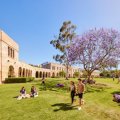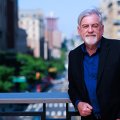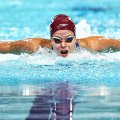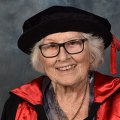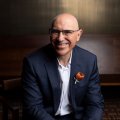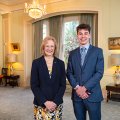Knowing how influential parents’ behaviour is with children was the reason a Brisbane father enrolled in a parenting program for divorced and separated couples founded at The University of Queensland.
After separating from his wife of nine years, Mr Justin Desmond enrolled in the Triple P Family Transitions program, a development on the Triple P – Positive Parenting Program (Triple P) which was established by UQ’s Professor Matt Sanders.
Mr Desmond said he knew he needed to seek help to ensure he wasn’t burdening his son Austin, 10, with his own grief.
“Sons look up to their fathers, and I knew I needed to be a positive role model for Austin,” Mr Desmond said.
“The program taught me how important it is to keep negative feelings and disparaging comments about your ex-partner away from your child.”
As part of the program, Mr Desmond attended group sessions with other parents who were also going through divorce.
Three years after completing the program, Mr Desmond often receives comments on how close he is with Austin.
“It’s great to get compliments from people, and I am just so happy that Austin knows he can talk to me about absolutely anything, and he does,” Mr Desmond said.
“Triple P Family Transitions had a big part in that, and I recommend any parent going through divorce to do the program.”
For more than 25 years, the core Triple P has empowered parents all over Australia and the world with techniques to help manage their children's behaviour.
More than 35,000 professionals have been trained in 19 countries including the USA, UK, Japan, Sweden, the Netherlands, Singapore and Iran.
With tips such as give your child lots of physical affection, have realistic expectations and parents need to look after themselves, as well as their children, the program offers practical advice and support when it comes to controlling inevitable temper tantrums.
According to Program founder Professor Sanders, the core Triple-P continues to evolve to meet the demands and needs of parents today.
“In our 30 years of research and operation, we have introduced programs to help parents of obese children, parents with special needs children, parents of children with chronic illness, and even grandparents who find themselves as custodial parents,” Professor Sanders said.
“Our aim is to make the program available to parents all over the world, and to do that, we will continue to improve and customise the program based on solid, scientific research.”
Professor Sanders joins the 186,000 graduates who will be celebrated during the UQ Centenary Alumni Reunion Weekend from July 2–4.
Thousands of alumni, including former and current staff and students, are expected to return to campus for the weekend, which will hold school, faculty and college reunions, plus a range of events and activities open to the public.
Since its official inception in 1910, UQ has grown into one of the top 50 universities in the world with more than 40,000 students across four main campuses and more than 50 research and teaching sites.
Notable UQ graduates returning this weekend include Governor-General Dr Quentin Bryce AC and Dr David Malouf AO. Other well-known alumni include Academy-Award winner Geoffrey Rush, former Australian Wallabies captain John Eales and Nobel Laureate Professor Peter Doherty AC.
More information: www.alumni.uq.edu.au/reunionweekend
Media: Claire Corones (07 3346 3908) or Shannon Price (07 3346 7660).
.jpg)
